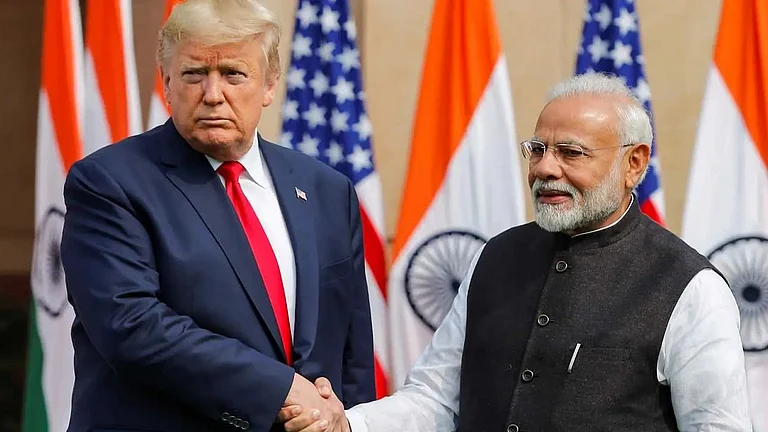The harder India tries to placate US President Donald Trump's tariff tantrums head-on, the more trouble seems to creep in from unexpected corners. Trump on Monday announced that countries which import gas and oil from Venezuela would pay 25% tariffs on any trades with the US, sending shockwaves to the energy sector.
Why Donald Trump's Venezuela Tariff Move Spells Trouble for India’s Energy Security
India halted oil imports from Venezuela in 2019 after the US imposed sanctions but resumed purchases in December 2023 following a partial easing of restrictions by the Biden administration
For India—one of Venezuela's top oil importers alongside China—this will cause more pain. The imposition will come into effect on April 2, the same day that Trump intends to levy reciprocal tariffs. Trump confirmed that 25% tariff would be additional to the existing ones.
India's Venezuelan Equation
India halted oil imports from Venezuela in 2019 after the US imposed sanctions. However, it resumed purchases in December 2023 following a partial easing of restrictions by the Biden administration.
Welcoming the return of Venezuelan oil to the market, then Petroleum Minister Hardeep Singh Puri said, "We always buy from Venezuela. We have always bought stuff from Venezuela. It's when Venezuela came under sanctions that they were not able to supply." Puri's statement underscored the critical role that Venezuelan oil plays in India’s energy security.
India's engagement with Venezuela runs deep. Central public sector undertaking (PSU) Oil and Natural Gas Corporation's (ONGC) international arm ONGC Videsh, signed a joint venture agreement with Venezuela’s state oil company PDVSA in 2008 to acquire a 40% stake in the San Cristobal field in eastern Venezuela’s Orinoco Heavy Oil belt. ONGC Videsh also holds 11% in the Carabobo Area oil field. Both Indian Oil Corporation and Oil India have 3.5% stake there too.
Why Venezuela Matters to India
India has been constantly trying to diversify its oil imports, and Venezuela is one of its top considerations. Venezuela sold 6,60,000 barrels of crude oil a day last year, with India, China and Spain as its top buyers. India purchased nearly 22mn barrels of Venezuelan oil in 2024, constituting 1.5% of its total crude oil imports.
India was the top crude oil buyer in December 2023 and January 2024. It imported 191,600 barrels per day in December which increased to 254,000 barrels per day in the next month. In January, India almost purchased half of Venezuela’s exports.
India's private players also have their fair shares in it. Reportedly, India's largest private refiner, Reliance Industries, was the second-largest individual Venezuelan crude importer before Trump's sanctions were first imposed in 2019. It was just behind China's CNPC. As per Reuters, Reliance contributed to a significant portion of New Delhi's oil imports from Venezuela after it received US approvals in 2023. An industry insider also told the news agency that the ONGC too sought a waiver from the US Office of Foreign Assets Control to lift crude oil sanctions from Venezuela.
India's Balancing Act
For the world’s third-largest oil importer and consumer India, which relies on imports for over 85% of its crude oil requirements, any step to secure supplies is important. Securing diversified sources of energy is critical for India’s economic stability.
During Prime Minister Narendra Modi's visit to Washington DC this year, India committed to procure more oil and gas from the US in a bid to mitigate risks from looming tariffs. It is estimated to increase India's energy imports from the US to $25bn from $15bn last year.
Adding a diplomatic dimension to these efforts, earlier, US Treasury Secretary Scott Bessent indicated that Washington is open to discussions with trading partners to address tariff concerns and explore ways to avoid potential levies.
Connecting the dots, this could present an opportunity for India to negotiate as Brendan Lynch, the Assistant US Trade Representative for South and Central Asia, is set to lead a delegation to India between March 25 and 29 and hold discussions around trade concerns with Indian counterparts.
With mounting pressure to secure its energy needs while avoiding punitive tariffs, India finds itself at a crossroads. Can India successfully balance its ties with Venezuela and the US to safeguard its energy security?
